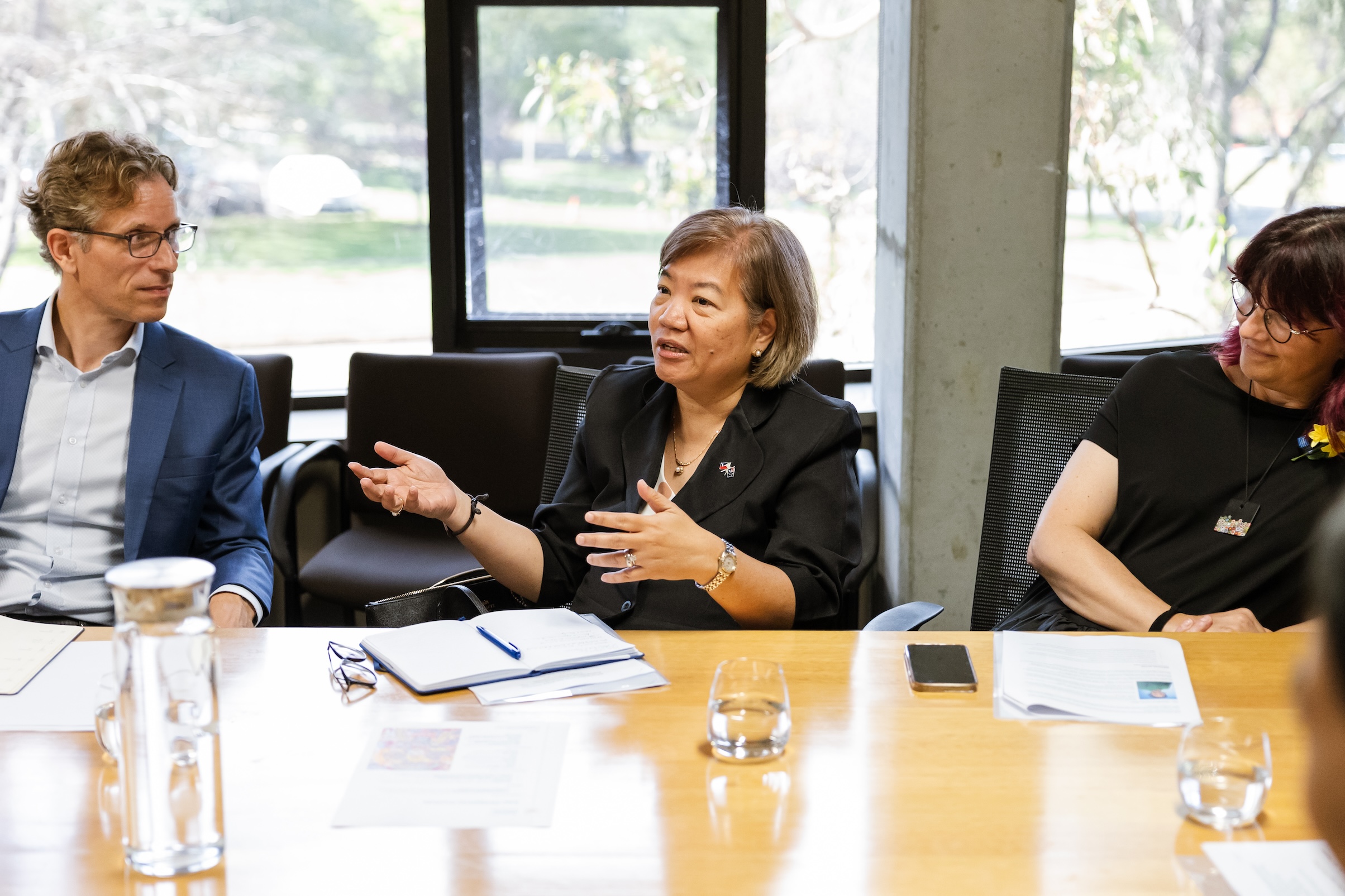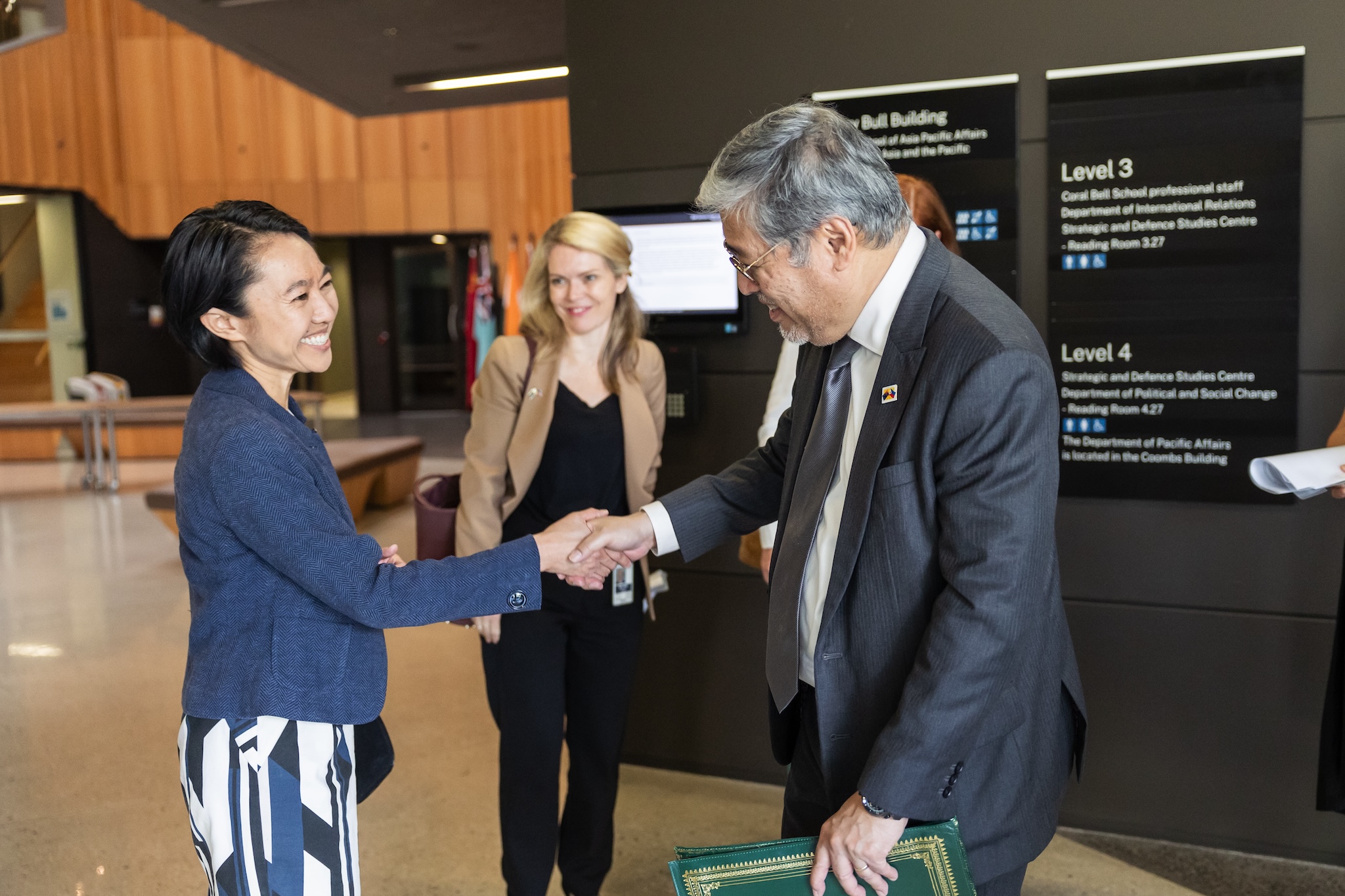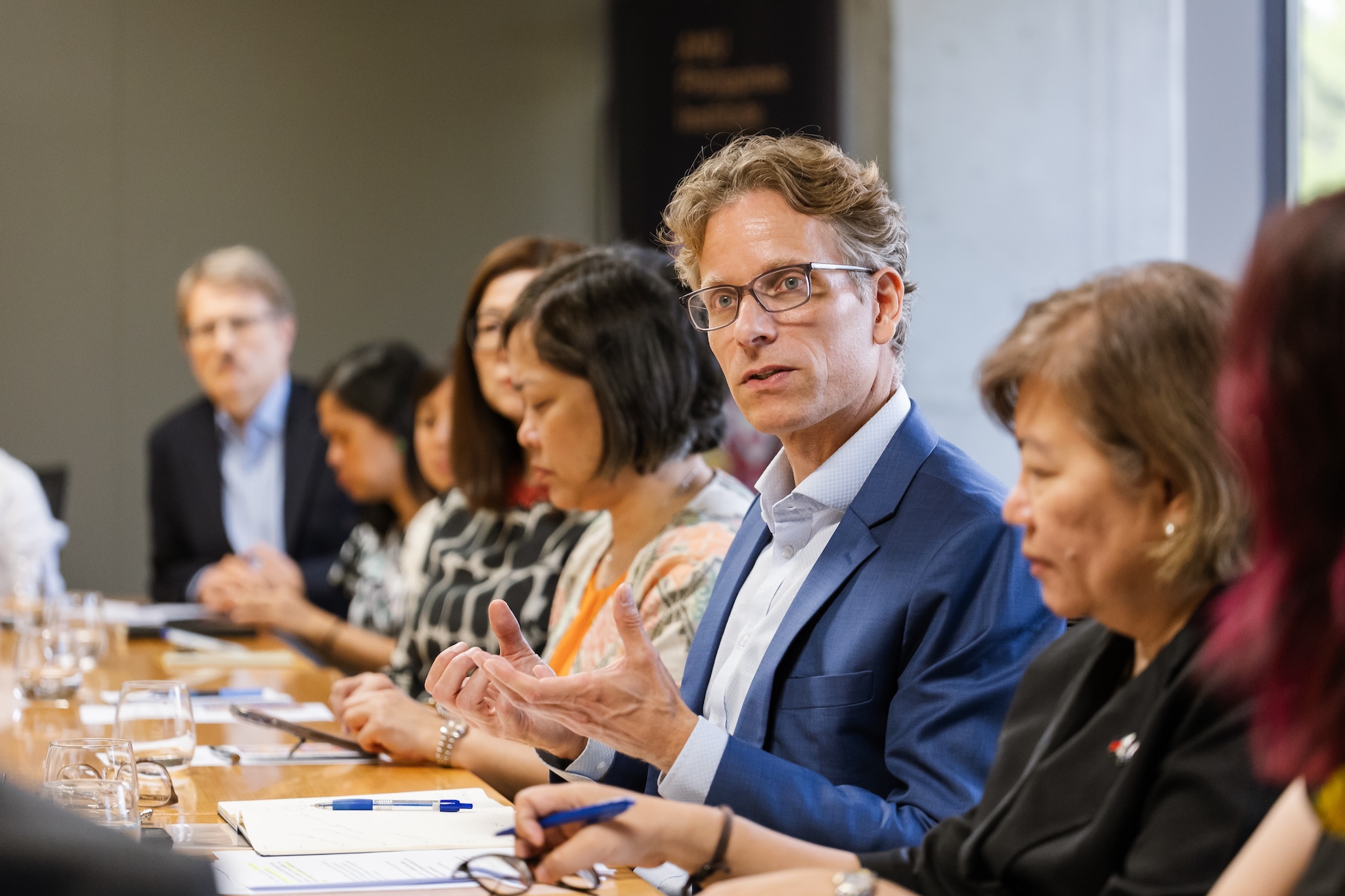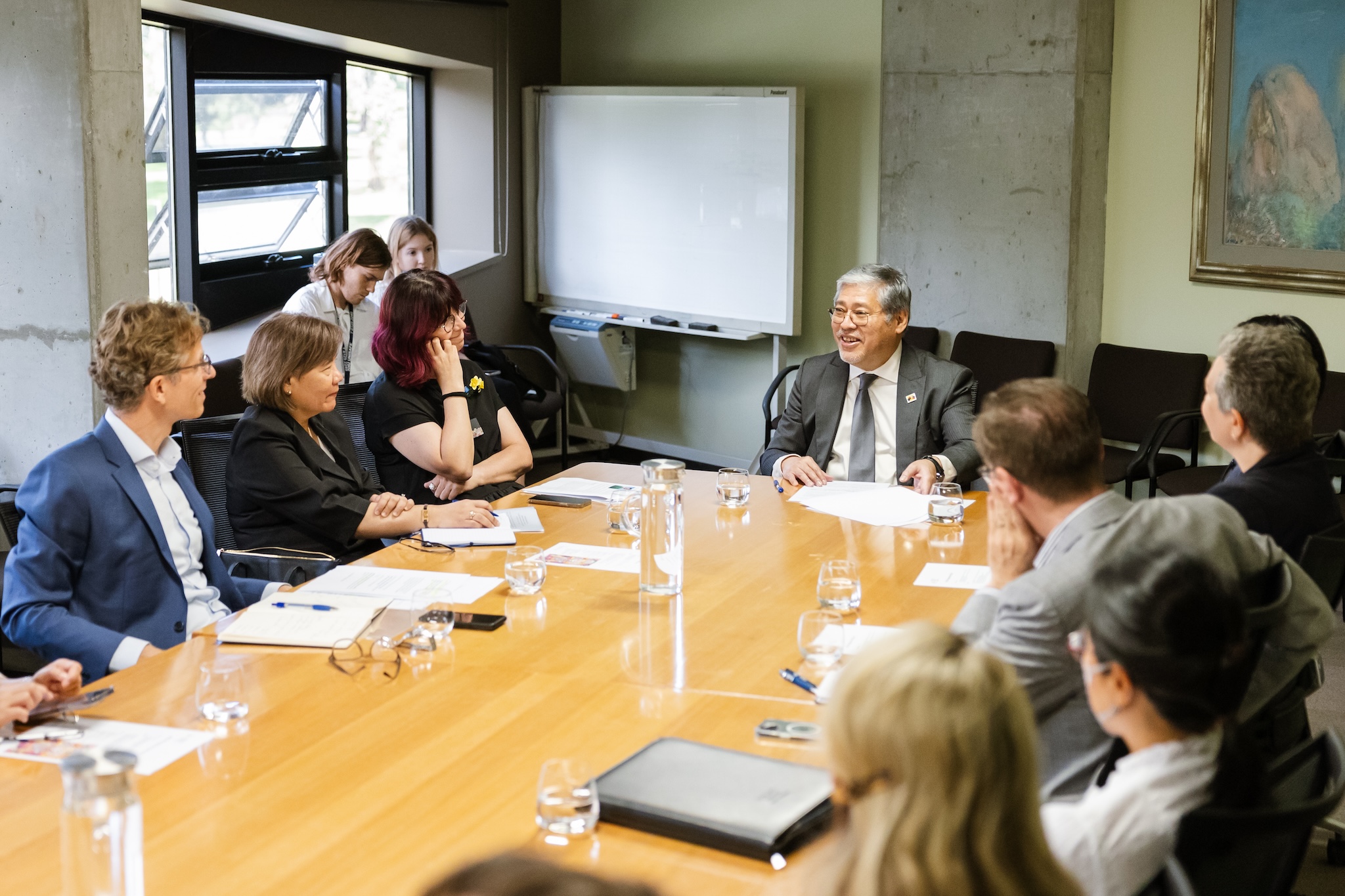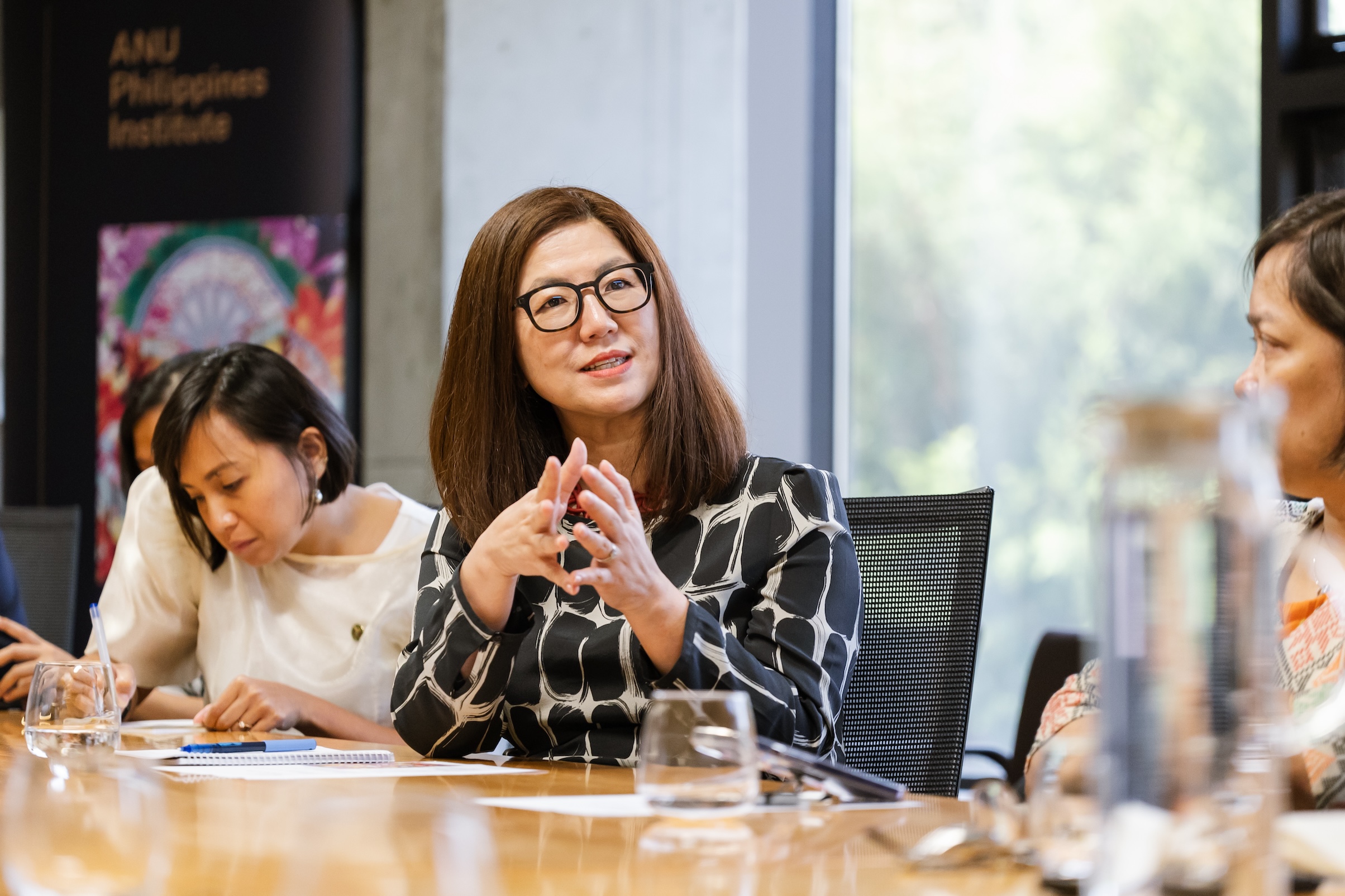CAP welcomes Philippines Secretary for Foreign Affairs amid development of historic Strategic Partnership
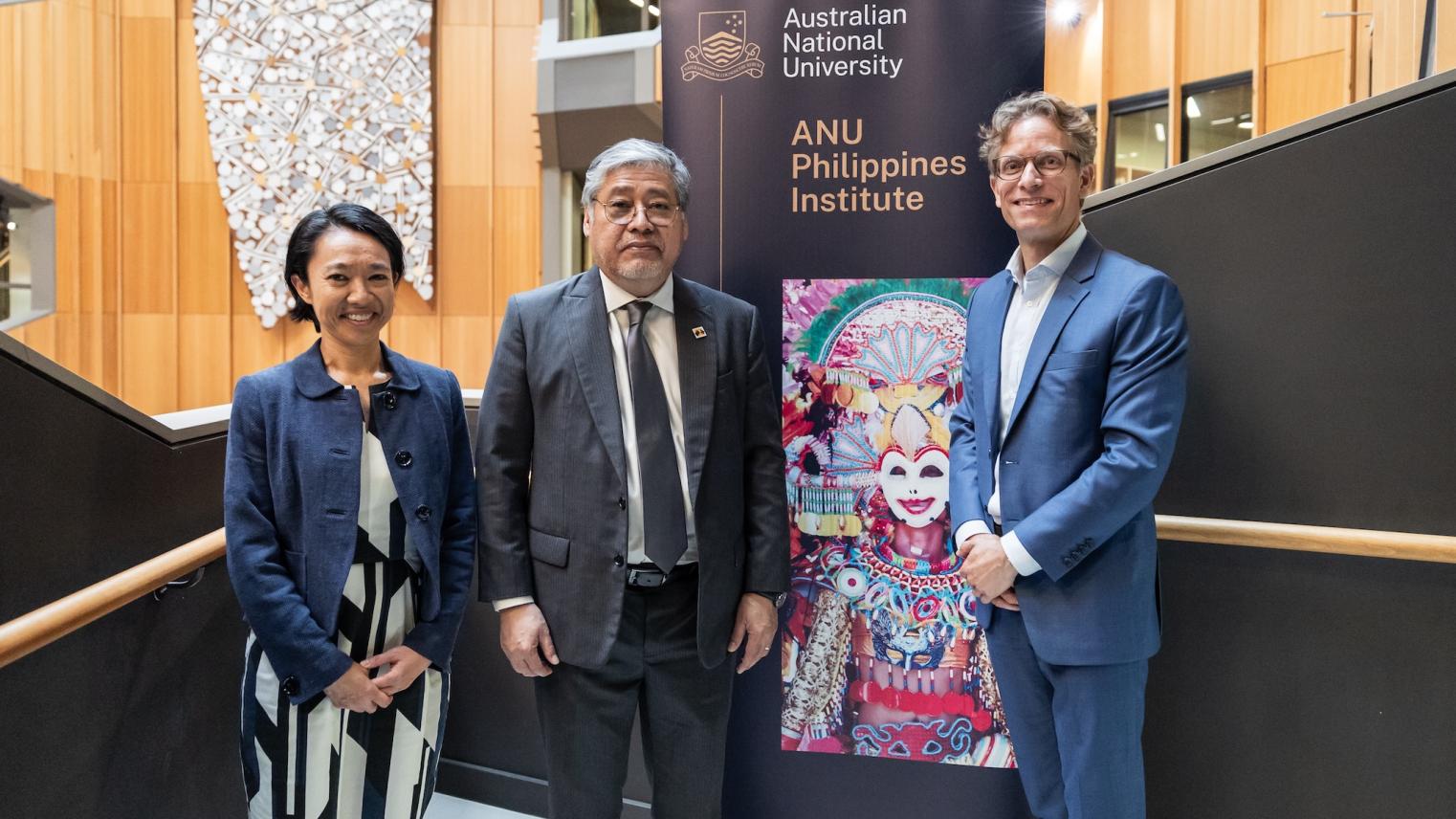
The Philippines Secretary for Foreign Affairs, the Hon. Enrique A. Manalo, was welcomed by the ANU College of Asia and the Pacific’s newly established Philippines Institute for a round-table discussion on Friday, March 1.
His visit comes during a time of historic development in bilateral relations between Australia and the Philippines after the two countries entered into a new Strategic Partnerships agreement.
The strengthening of this relationship comes at a pivotal moment for the College, with the recent establishment of the ANU Philippines Institute in October last year.
Institute director and college Associate Professor Björn Dressel is confident the work of the Institute goes "hand-in-hand" with strengthening ties between the two nations.
“It is very fitting and timely that we have a dedicated Institute focused on the Philippines,” he said.
“We want to become a global hub for Philippines studies.
“Secretary Manalo’s presence here today, really marks a significant moment in our journey of fostering collaboration, knowledge, technology exchange and of course partnerships with the Philippines.”
While joining esteemed academics, College staff, diplomates, and representatives from the Department of Foreign Affairs and Trade (DFAT), Secretary Manalo said the work of the Institute will contribute to greater understanding and cooperation between the governments and people of Australia and the Philippines.
“Our growing partnership between Australia and the Philippines has resulted in the establishment of the Philippines Institute at The Australian National University (ANU), one of Australia’s most prestigious universities,” he stated.
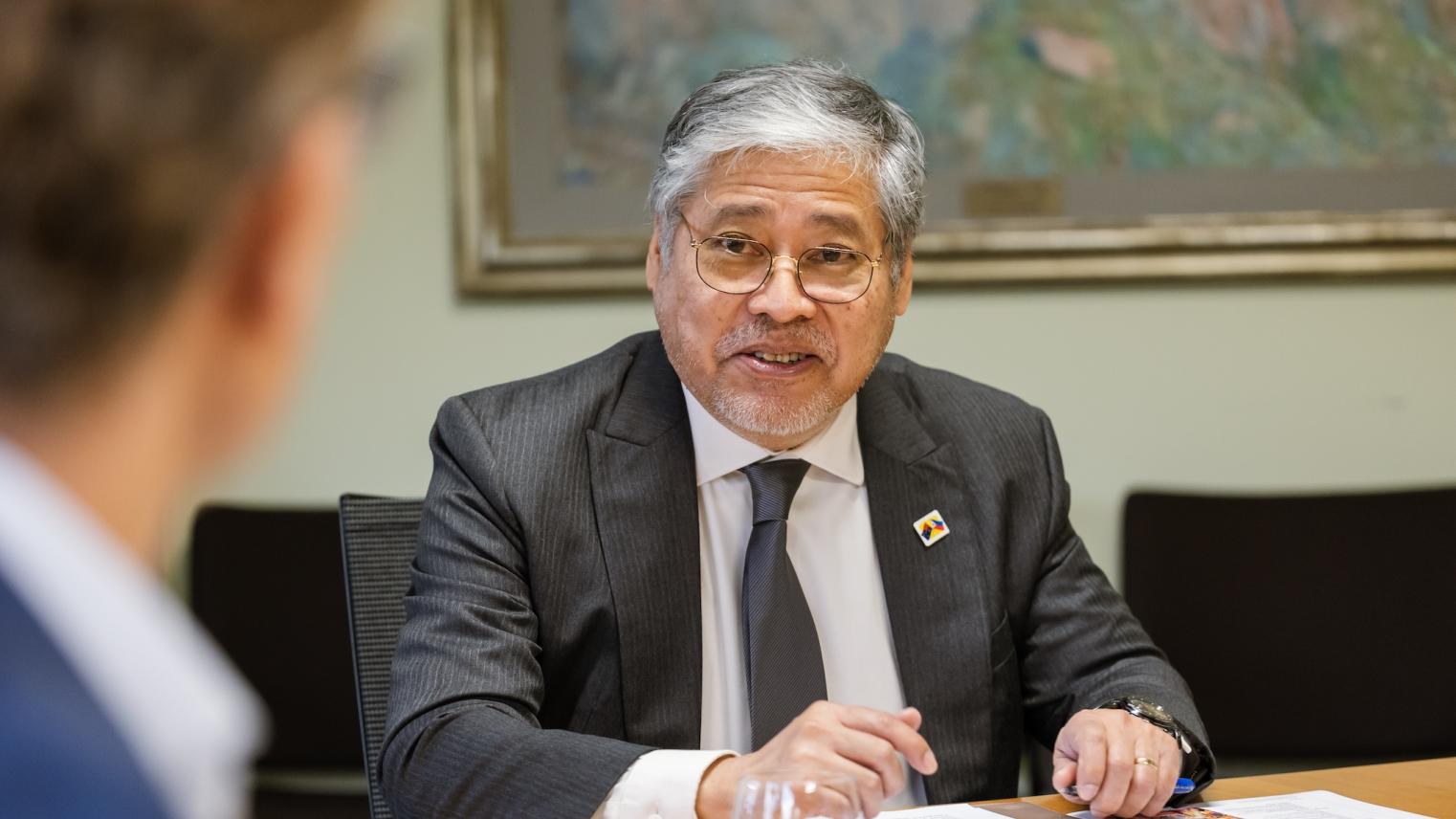
While the ANU Philippines Institute is still in its early stages, there’s already significant interest in the expertise and outstanding research it offers, alongside the College. The Institute will be involved in a wide range of collaborative efforts addressing various policy, research, and governance matters.
“We [the Institute] want to collaborate on strategic studies and foreign policy, economic resilience, empowerment of women and gender, food security, climate change and human rights and rule of law,” said Associate Professor Dressel.
Visiting Secretary for Southeast Asia and Global Partners in DFAT Michelle Chan, is already confident the visit from Secretary Manalo and establishment of the Institute will have significant impact on regional diplomacy.
“The ANU Philippines Institute has already become a really valuable forum for discussing issues of relevance for our blossoming relationship and our region,” she said.
Secretary Manalo’s visit is part of a broader diplomatic mission to Australia with President Ferdinand R Marcos Jr, and First Lady Louise Araneta-Marcos visiting Australia this year. Their visit comes during a time of historic bilateral relations between Australia and the Philippines after Prime Minister Anthony Albanese became the first Australian Prime Minister to officially visit the Southeast Asian nation in 20 years.
The evolving partnership between Australia and the Philippines presents a unique chance for the ANU College of Asia and the Pacific and the ANU Philippines Institute to contribute to a noteworthy transformation in diplomatic relations, while also making a meaningful impact and fostering engagement within the region.
Image credit: Luka Vertessy, ANU College of Asia and the Pacific.
By Cooper Williams, ANU College of Asia and the Pacific.
